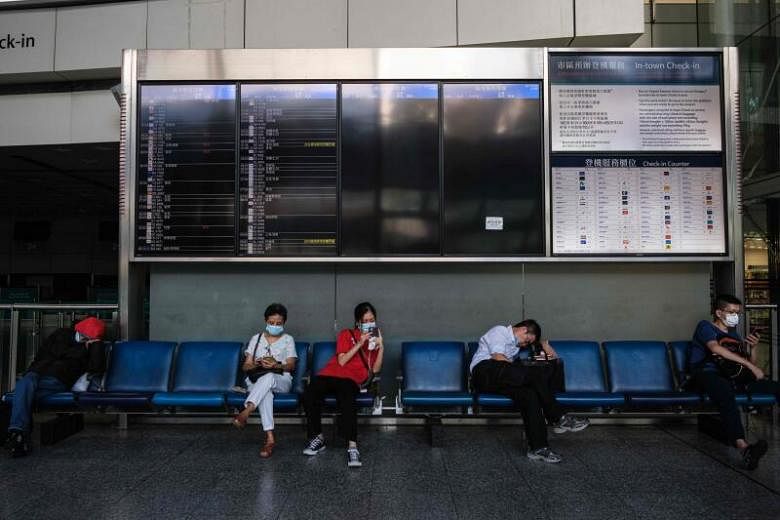HONG KONG (BLOOMBERG) - A man was infected with the coronavirus after recovering from an initial bout in April in what scientists said was the first case showing that reinfection may occur within a few months.
The 33-year-old's second Sars-CoV-2 infection was detected via airport screening on his return to Hong Kong from Europe this month.
Researchers at the University of Hong Kong used genomic sequence analysis to prove that he had been infected by two different strains.
The information technology worker didn't develop any symptoms from his second infection, which might indicate that any "subsequent infections may be milder", the researchers said.
"Our findings suggest that Sars-CoV-2 may persist in humans," Dr Kwok-Yung Yuen and colleagues said on Monday (Aug 24) in a paper accepted for publication in the journal Clinical Infectious Diseases.
The findings are reminiscent of the coronaviruses that cause the common cold, and suggest Sars-CoV-2 may continue to circulate "even if patients have acquired immunity via natural infection or via vaccination", they said.
While some patients have tested positive for the virus over many weeks, even after their symptoms have resolved, scientists haven't fully understood whether these cases reflect lingering traces of the virus, a re-eruption of an infection, or a new infection.
This is "the world's first documentation of a patient who recovered from Covid-19, but got another episode of Covid-19 afterwards", the researchers said in an e-mailed statement.
Worldwide, some 24 million people are known to have been infected with Covid-19, Dr Maria van Kerkhove, the World Health Organisation's technical lead on Covid-19, told reporters in Geneva on Monday.
Most patients - even those who have a mild case - mount an immune response to the infection, she said.
What's not known is how strong and how long that response lasts. It's important to document cases like the one described in Hong Kong, "but not jump to any conclusions", Dr Van Kerkhove said.
Studies tracking larger numbers of cases over time are needed to better understand the quality and durability of recovered patients' neutralising antibody response to Sars-CoV-2, she said.
"Before this report, many believe that recovered Covid-19 patients have immunity against reinfection, however, there is evidence that some patients have a waning antibody level after few months," the University of Hong Kong researchers said in the statement.











